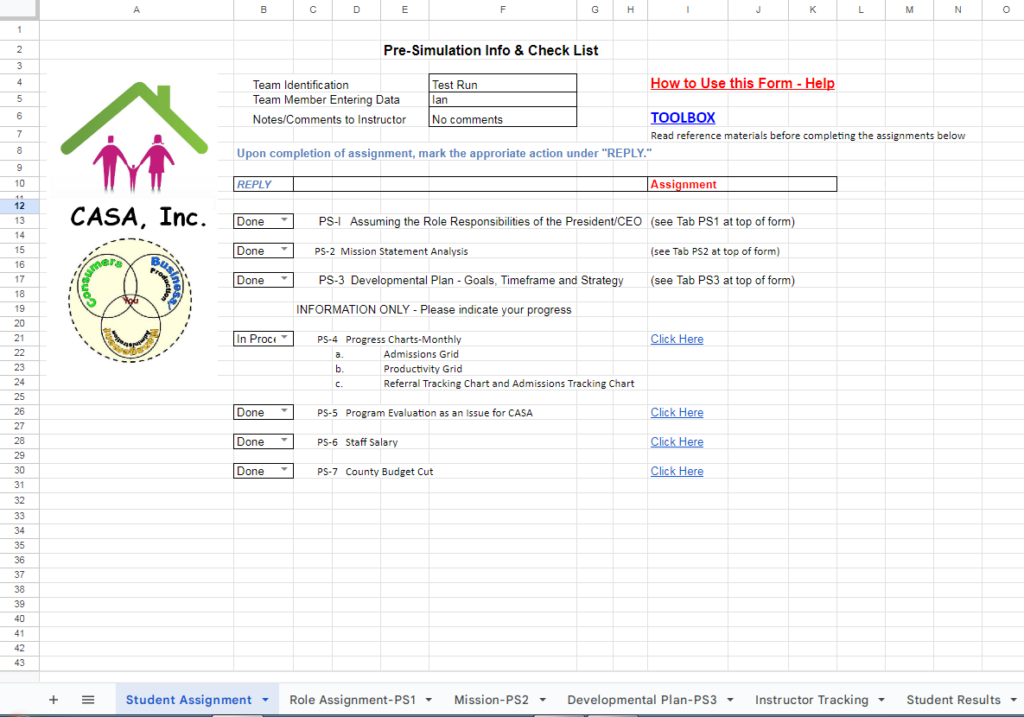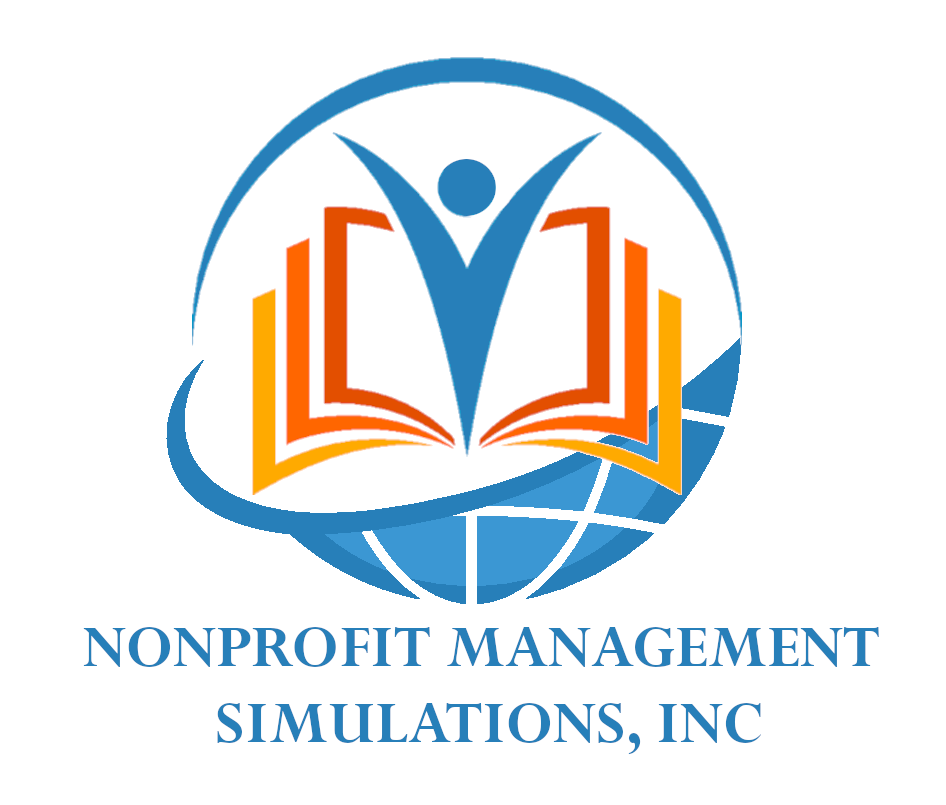The Not-For-Profit Management Simulation provides an innovative approach to learning how to manage a community service program. The simulation offers the opportunity to make management decisions through critical incident experiences in the process of managing the community service organization over a period of six months.
Events and simulation exercises are not programmed or predictable but allow for individual decision making. The consequences of the decisions are evaluated through feedback and progress reports.

The management development program learning areas are grouped under the following categories:
- Management, Leadership and General Administration
- Mission Statement Exercise
- Strategic Planning, Management and Organizational Development
- Human Resource Management
- Fund Raising
- Finance Management
- Orientation to Performance Indicators
- Admission Services
- In-take Evaluation/Assessment
- Case Management
- Program Service Options
- Managing Programs and Services
- Contractual Services (in-house and off-site)
- Government Fees for Service Contracts
- Marketing
- Consumer/Customer Services
- Community & Board Relations
- Community and Public Relations
- Board of Directors Relations
- Accreditation
- Performance Indicators
- Simulation Application and Transfer Analysis
Whether offered as a traditional semester course or over the Internet, the simulation requires approximately 40 hours to complete. The format is flexible, and may also be offered over two weekends or as an intensive, five-day course.
(Example of monthly assignment page below)

Orientation Video: Monthly Simulation Instructional Video
Pedagogical Approach-Discovery Learning
The pedagogical approach provides a learning experience through a simulated exercise–managing a human service organization. The simulation-learning environment is based on published organizational behavior management research from several types of human service organizations.
The research-based open-systems model incorporates three distinct cyclical phases of learning theory: cognition, application, and reflection. Learners construct new ideas or concepts based upon their own knowledge and experience, make decisions and discover principles. Bruner, whose learning theory underlines the simulation, states that “the instruction should be designed so that the student continually builds upon what “they” have learned”(Keraley, 1994).

